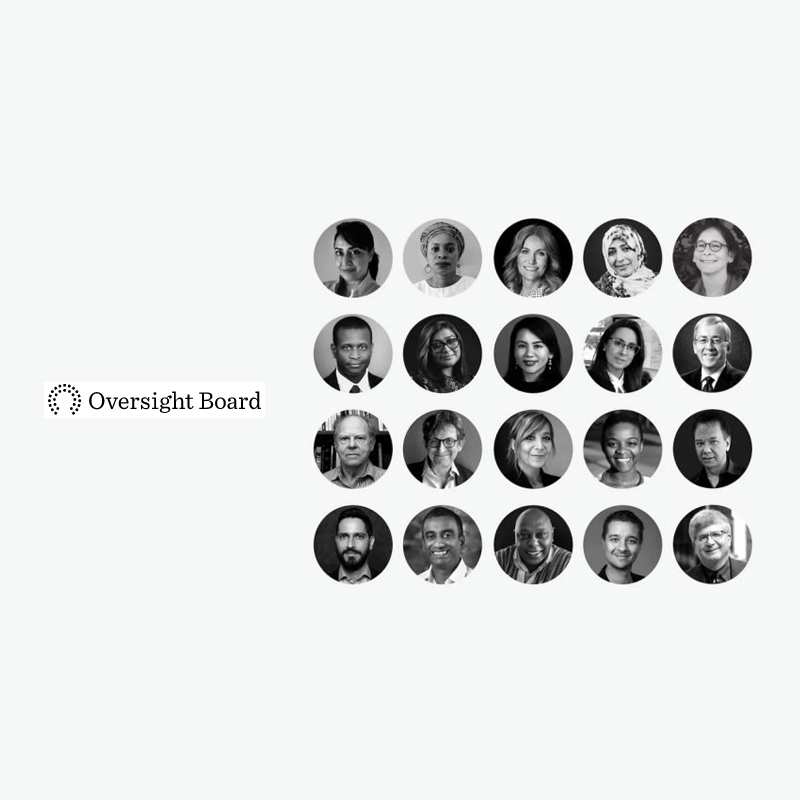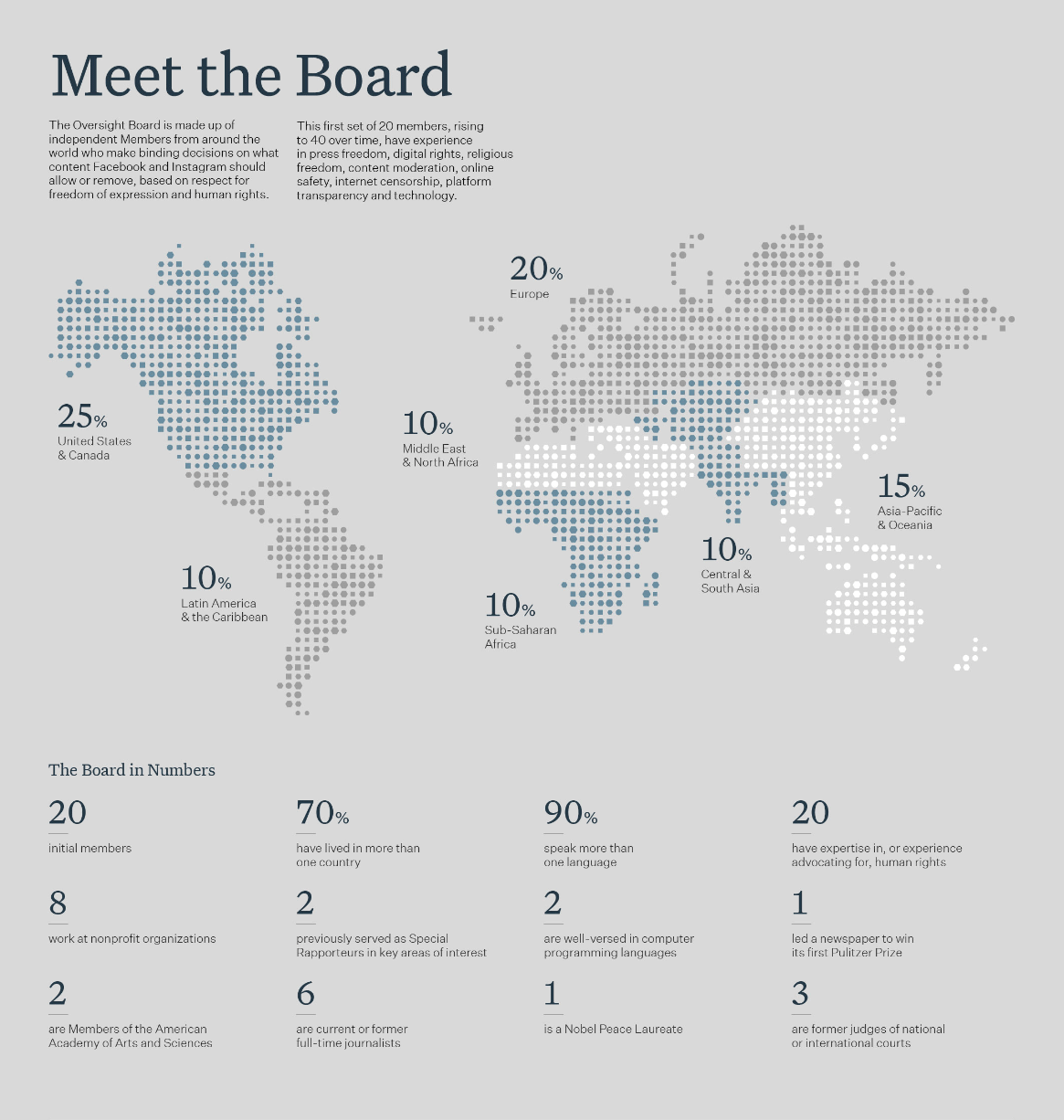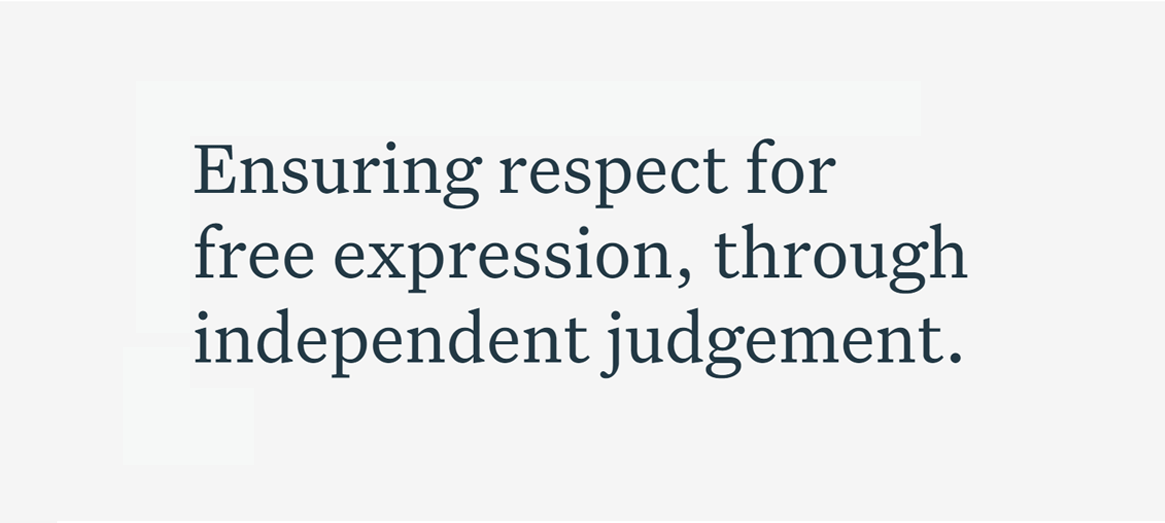
With more than 2 billion users, Facebook is high up in the sky.
And the higher it goes, it needs to deal with a lot of weight under its feet, and wind up above. From dealing with competition, to addressing major content moderation problems. And one man simply can't control everything.
It began back in the earlier years of the social giant when founder and CEO Mark Zuckerberg decided to create Facebook's Creative Labs to unbundle the big blue app.
He knew that Facebook was going to be a hit, the largest social media network far beyond others. Being one huge app can kill everything, even itself. And this is why unbundling Facebook was meant to diverse the app, to make it more manageable.
This gave birth to the standalone Facebook Messenger app, for example.
Fast forward, Facebook is becoming a giant on its own, and the company is well aware of the enormity of this problem.
"One of the most painful lessons I've learned," Zuckerberg wrote in late 2018, "is that when you connect two billion people, you will see all the beauty and ugliness of humanity."
As a result, Facebook is establishing an oversight board that it says is outside of Facebook's control, but can ultimately overrule Facebook's own policies on content management. The company has pledged $130 million to get the board funded and operational.
On May 6, 2020, Facebook revealed the members of its first ever oversight board:
- Endy Bayuni: a staffer and board member at The Jakarta Post; a journalist for over three decades, primarily focused on national politics and Islam, and serves as the executive director of the International Association of Religion Journalists.
- Michael McConnell: a director of the Constitutional Law Center at Stanford Law School. He also teaches a course on freedom of speech, press, and religion, and served for seven years as a circuit judge on the U.S. Court of Appeals for the Tenth Circuit.
- John Samples: a VP at the Cato Institute, a Libertarian think tank founded by the Koch brothers. Samples focuses on free speech, the First Amendment, content moderation; to that end, he's written several books on those subjects.
- Afia Asantewaa Asare-Kyei: a human rights lawyer whose career focuses on "supporting and developing transformational social programs and advocacy strategies," primarily on her home continent of Africa.
- Emi Palmor: an Israeli lawyer and professor, and served as the Director General of the Ministry of Justice for five years.
- Jamal Greene: a law professor at Columbia Law School. He's taught classes on a variety of legal subjects, from constitutional law to the American federal courts. Before entering academia professionally, Greene served as a law clerk on the US Court of Appeals for the Second Circuit and on the US Supreme Court.
- Pamela Karlan: a professor at Stanford Law School, who serves as co-director to Stanford's Supreme Court Litigation Clinic.
- Sudhir Krishnaswamy: a law professor and serves as vice chancellor at the National Law School of India University, as well as the the secretary and rreasurer of the Consortium of National Law Universities of India.
- Nicolas Suzor: a law professor at Queensland University of Technology, and a member of the leadership at the school's Digital Media Research Centre. His research focuses on, "the governance of the internet and social networks, the regulation of automated systems, digital copyright, and knowledge commons."
- Ronaldo Lemos: a lawyer who focuses on "technology, intellectual property, media and public policy." He is a partner at the Brazilian law firm PNM Advogados, a visiting scholar at several prominent universities, and the co-creator of the Brazilian Internet Bill of Rights.
- András Sajó: a former judge and VP at the European Court of Human Rights, professor Central European University, and a member of the Hungarian Academy of Sciences. He served as advisor on three separate constitutions: Ukraine, Georgia, and South Africa.
- Tawakkol Karman: a journalist, civil rights activist and the first Arab woman to win a Nobel prize. She is the co-founder of Women Journalists Without Chains.
- Maina Kiai: served as the UN's Special Rapporteur for Freedom of Assembly and Association. He's known for his work in human rights, particularly through the medium of documentary film.
- Evelyn Aswad: a law professor at the University of Oklahoma College of Law and the director of the school's Center for International Business and Human Rights.
- Catalina Botero-Marino: a lawyer and dean of the Law School at Universidad de Los Andes, Colombia. Her career has focused on freedom of expression and human rights.
- Nighat Dad: a lawyer and co-founder of Digital Rights Foundation - a non-profit that focuses on "cyber harassment, data protection and free speech online in Pakistan and South Asia."
- Julie Owono: an executive director of Internet Sans Frontières, an open internet advocacy group. Her work primarily focuses on digital rights and expanding internet access.
- Helle Thorning-Schmidt: a former prime minister of Denmark, from 2011 to 2015, and serves as a member of a variety of foreign policy think tanks
- Alan Rusbridger: is the Principal at Lady Margaret Hall, and former Editor-in-Chief of The Guardian, where he led the publication from 1995 to 2015. He earned a Pulitzer Prize in 2014 for public service, and, beyond his work in journalism, is the author of several children's books.
- Katherine Chen: a communications professor at National Chengchi University (NCCU), Taiwan. She previously served as the commissioner of the National Communications Commission of Taiwan, and is a published academic researcher.

According to the announcement on The Oversight Board's website:
"The Oversight Board represents a new model of content moderation for Facebook and Instagram and today we are proud to announce our initial members."
"We will make decisions based on these principles, and the impact on users and society, without regard to Facebook’s economic, political or reputational interests. Facebook must implement our decisions, unless implementation could violate the law."
The Oversight Board is simply an independent body that can pass judgement on Facebook‘s policies, assist in content moderation, and hear appeals on existing decisions.
In theory, the committee can help Facebook navigate through difficult decisions of considering what is good or bad on the platform.
Initially, there are 20 members introduced. Facebook said that it plans to have 40 members in total, from a variety of different backgrounds, none of whom have any connection to Facebook itself.
When there is case that needs to be solved, the board is meant to hear it in five-person panels to make the final ruling.
The idea behind this group is that it can overrule Facebook‘s upper management in policy decisions and content moderation.
These people can even overrule even CEO Mark Zuckerberg.
.
This way, the committee should help Facebook and its users figure out what is the right thing in cases that involve potential danger, censorship, and the free speech of millions of people.
Zuckerberg said in 2018 that the independent board would “be focused only on our community,” adding that “the purpose of this body would be to uphold the principle of giving people a voice while also recognizing the reality of keeping people safe.”

The Facebook Oversight Board is a great measure, especially as Facebook is growing too large to be on its own, and with Zuckerberg.
The people in the committee have been selected have a wide variety of expertise and qualifications, to make sure that they're ideal for judging delicate social situations.
While the aim for this committee is for a good reason, it should be noted that it won’t be able to fix every problem happening on Facebook, and that some of their decisions won’t please everyone involved.
What's more, one's decision may be personal.
As everyone can have different thoughts, the committee may seem like something humorous at first thought. But considering that Facebook is already facing a lot of problems, a solution to curb them can be a good solution for all.
According to the Board’s website, it’ll begin its work immediately, and will start hearing cases “in the coming months.”